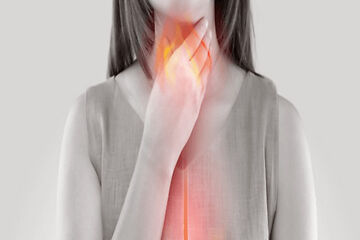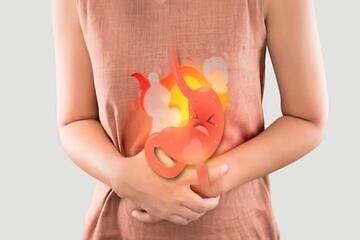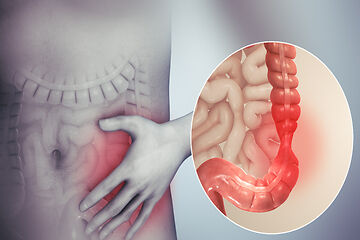What is Gastritis?

Gastritis is a general term for a group of conditions with one thing in common: inflammation of the lining of the stomach. The inflammation of gastritis is most often the result of infection with the same bacterium that causes most stomach ulcers.
Gastritis may occur suddenly (acute gastritis), or appear slowly over time (chronic gastritis). In some cases, gastritis can lead to ulcers and an increased risk of stomach cancer. For most people, however, gastritis isn't serious and improves quickly with treatment.
What are the signs and symptoms of Gastritis?
There are some signs that can help to know if you have Gastritis disease or not, but you may not notice them right away.
However, the possible signs that may help you out are:
- Heartburn (acid indigestion): It usually feels like a burning chest pain that starts behind your breastbone and moves upward to your neck and throat. Many people say it feels like food is coming back into the mouth, leaving an acid or bitter taste.
- Gnawing or burning ache or pain (indigestion) in your upper abdomen that may become either worse or better with eating
- Hiccups
- Loss of appetite
- Vomiting blood or coffee ground-like material
- Disrupted sleep
- Nausea: Stomach discomfort and the sensation of wanting to vomit.
Immediately contact your doctor if you notice any such signs.
What are the causes of Gastritis?
Gastritis can be caused by irritation due to excessive alcohol use, chronic vomiting, stress, or the use of certain medications such as aspirin or other anti-inflammatory drugs.
Helicobacter pylori (H. pylori): A bacteria that lives in the mucous lining of the stomach; without treatment, the infection can lead to ulcers, and in some people, stomach cancer.
Diagnosis of Gastritis
To diagnose gastritis, your doctor will review your personal and family medical history, perform a thorough physical evaluation, and may recommend any of the following tests:
Some tests that are normally done are as:
- Upper endoscopy. An endoscope, a thin tube containing a tiny camera, is inserted through your mouth and down into your stomach to look at the stomach lining. The doctor will check for inflammation and may perform a biopsy, a procedure in which a tiny sample of tissue is removed and then sent to a laboratory for analysis.
- Blood tests. The doctor may perform various blood tests, such as checking your red blood cell count to determine whether you have anemia, which means that you do not have enough red blood cells. They can also screen for H. pylori infection and pernicious anemia with blood tests.
- Fecal occult blood test (stool test). This test checks for the presence of blood in your stool, a possible sign of gastritis.
What are the complications of Gastritis?
A few of the comorbidities you may face with Gastritis are:
- Left untreated, gastritis may lead to stomach ulcers and stomach bleeding. Rarely, some forms of chronic gastritis may increase your risk of stomach cancer, especially if you have extensive thinning of the stomach lining and changes in the lining's cells.Tell your doctor if your signs and symptoms aren't improving despite treatment for gastritis.
Prevention of Gastritis
Preventing and treating illnesses that can become the risk factor for Gastritis is the best way to curb out it's complications. Make sure to change a few of your lifestyle habits and do regular physical exercise (not intense one). Talk to your doctor and take the help of a dietician who can suggest a decent diet to avert Gastritis. A diet is a healthy component of Gastritis treatment in Ayurveda!






